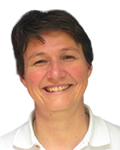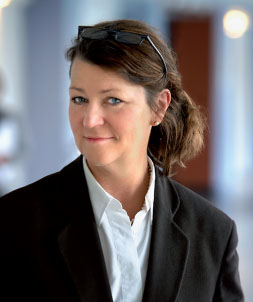11
Sep
2018
18:00
BST
Webinar
AdaptivCRT™ Algorithm for Chamber and Timing Optimisation in CRT Devices: What Is the Effect in a Real-World Population?
-
Views:
 3543
3543
-
Likes:
 0
0
Overview
In this webinar, experts in Cardiac Resynchronisation Therapy (CRT) will show how the AdaptivCRT™ algorithm improves the hemodynamic function of the heart and leads to better patient outcomes. Dr Ulrike Neuhold (Krems, AT) will present the echocardiographic impact of left ventricular only pacing, synchronised with spontaneous right ventricular conduction using AdaptivCRT; Dr Maurizio Lunati (Milan, IT) will show the latest clinical evidence in a real-world population and Prof Carina Blomström-Lundqvist (Uppsala, SE) will moderate the session.
Faculty:

Maurizio Lunati

Ulrike Neuhold

Carina Blomström-Lundqvist
This webinar is supported by

Key Learning Objectives
- The issue of non-response to CRT and how this can be addressed using device algorithms.
- The benefits of pacing only the left ventricle synchronised with spontaneous right ventricular conduction in CRT patients.
- The latest clinical results of AdaptivCRT™ in a real-world population.
Target Audience
- Cardiologists/electrophysiologists and HF specialists involved in the implantation and/or follow-up of cardiac resynchronisation therapy devices.
- Allied healthcare professionals such as physiologists, hospital technicians or nurses involved in cardiac resynchronisation therapy devices.
Faculty Biographies

Maurizio Lunati
Dr Maurizio Lunati is Director of Clinical Cardiac Electrophysiology and Cardiac Pacing Unit and Chairman of the Department of Cardiology/Cardiac-Thoracic-Vascular Surgery "A. De Gasperis", Niguarda Hospital, Milan, Italy.

Ulrike Neuhold
Dr Ulrike Neuhold is working as a Cardiologist in the University Hospital Krems, Austria and in her work, she focuses on electrophysiology, echocardiography, interventional cardiology and the implantation of devices.

Carina Blomström-Lundqvist
Dr Carina Blomström-Lundqvist is Professor of Cardiology at the Department of Cardiology, Institution of Medical Science, Uppsala, SE and Senior Consultant and Professor at the Department of Cardiology and Medical Science, Örebro University Hospital, Örebro, SE.
Key References
1. Birnie D, et al. Continuous optimisation of cardiac resynchronisation therapy reduces atrial fibrillation in heart failure patients: results of the Adaptive Cardiac resynchronisation therapy trial. Heart Rhythm 2017;14:1820-1825.
2. Birnie D, et al. Clinical Outcomes with Synchronised Left-Ventricular Pacing: Analysis of the Adaptive CRT Trial. Heart Rhythm 2013;9(10):1368-1374.
3. Krum H, et al. A novel algorithm for individualised cardiac resynchronisation therapy: rationale and design of the Adaptive CRT trial. Am Heart J 2012;163:747-752.
4. Martin DO, et al. Investigation of a novel algorithm for synchronised left ventricular pacing and ambulatory optimisation of cardiac resynchronisation therapy: results of the Adaptive CRT trial. Heart Rhythm 2012;9(11):1807-1814.
5. Singh JP, et al. Improved Survival with Dynamic Optimisation Of CRT Pacing Using AdaptivCRT Algorithm: Analysis Of Real-world Patient Data. Presented at HRS congress 2018 (Abstract B-AB37-06).
6. Singh JP, et al. Clinical response with adaptive CRT algorithm compared with CRT with echocardiography optimised atrioventricular delay: a retrospective analysis of multicentre trials. Europace 2013;11:1622-8.
7. Starling RC, et al. Impact of Novel Adaptive Optimisation Algorithms on 30-Day Readmissions: Evidence from the Adaptive CRT Trial. JACC Heart Failure 2015;7:565-572.





